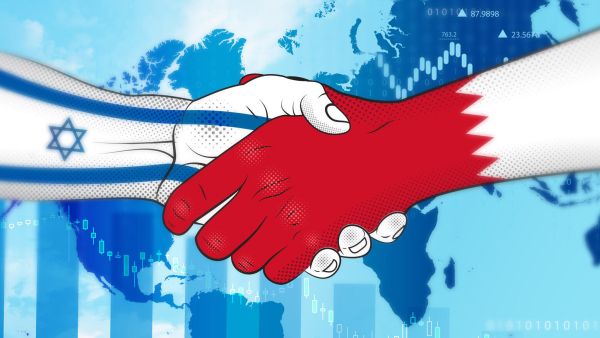Just four days before the UAE and Israel sign an agreement inaugurating full diplomatic ties in Washington, the US President announced that Bahrain will be joining the US-brokered event on the 15th of September, as it becomes the second GCC country to announce normalization with Israel.
A deal establishing relations between Israel and Bahrain will result in direct flights between the countries, Israeli Prime Minister Benjamin Netanyahu says.https://t.co/rHuGYG748L
— Al Arabiya English (@AlArabiya_Eng) September 13, 2020
Relations between the two GCC countries and Israel have been described by the US administration as "a significant breakthrough" in Middle Eastern politics, an achievement much needed to the Trump administration, that has pledged peace in the Middle East.
According to the Israeli Alternate PM and Defense Minister Benny Gantz, "normalization and promotion of ties with different countries in the region to create a front against joint threats, and bring economic cooperation that will strengthen the security and help the economy of Israel to come out of its crisis. We will do all that while preserving Israel’s security advantages in the region".
While a political analysis of the move would detail the joint hostility between the recent allies and Iran across the Gulf, economic analysts on the other hand are trying to weigh in the different advantages of the new regional cooperation and how it will be affecting economies on both sides of the agreement.
Commentators in favor of the Emirati and Bahraini decisions have hailed establishing ties with Israel as "the golden chance" for economic prosperity in the region, but what opportunities are there to look for?
According to an article published by the Al-Ain newspaper, both the economy of Israel and Bahrain are expected to witness the positive impacts of this deal, especially as both countries are among the significant players in the energy market of the region, producing oil and natural gas.
Another HISTORIC breakthrough today! Our two GREAT friends Israel and the Kingdom of Bahrain agree to a Peace Deal – the second Arab country to make peace with Israel in 30 days!
— Donald J. Trump (@realDonaldTrump) September 11, 2020
Moreover, the Bahraini attempts to diversify its economy that has been focused on the oil industry for decades are going to have new horizons in terms of agriculture, healthcare, high tech, manufacturing, and other non-oil related investments.
Similar to the expectations of strong tourism revival in both Israel and the UAE, both Israel and Bahrain will soon be running air flights that will help their tourism sector thrive especially after the Coronavirus crisis.
Additionally, Bahrain's strong start-up scene might be interested in making use of advanced technological tools and software developed in Israel and maybe working with Israeli tech institutions to innovate their own gadgets.







